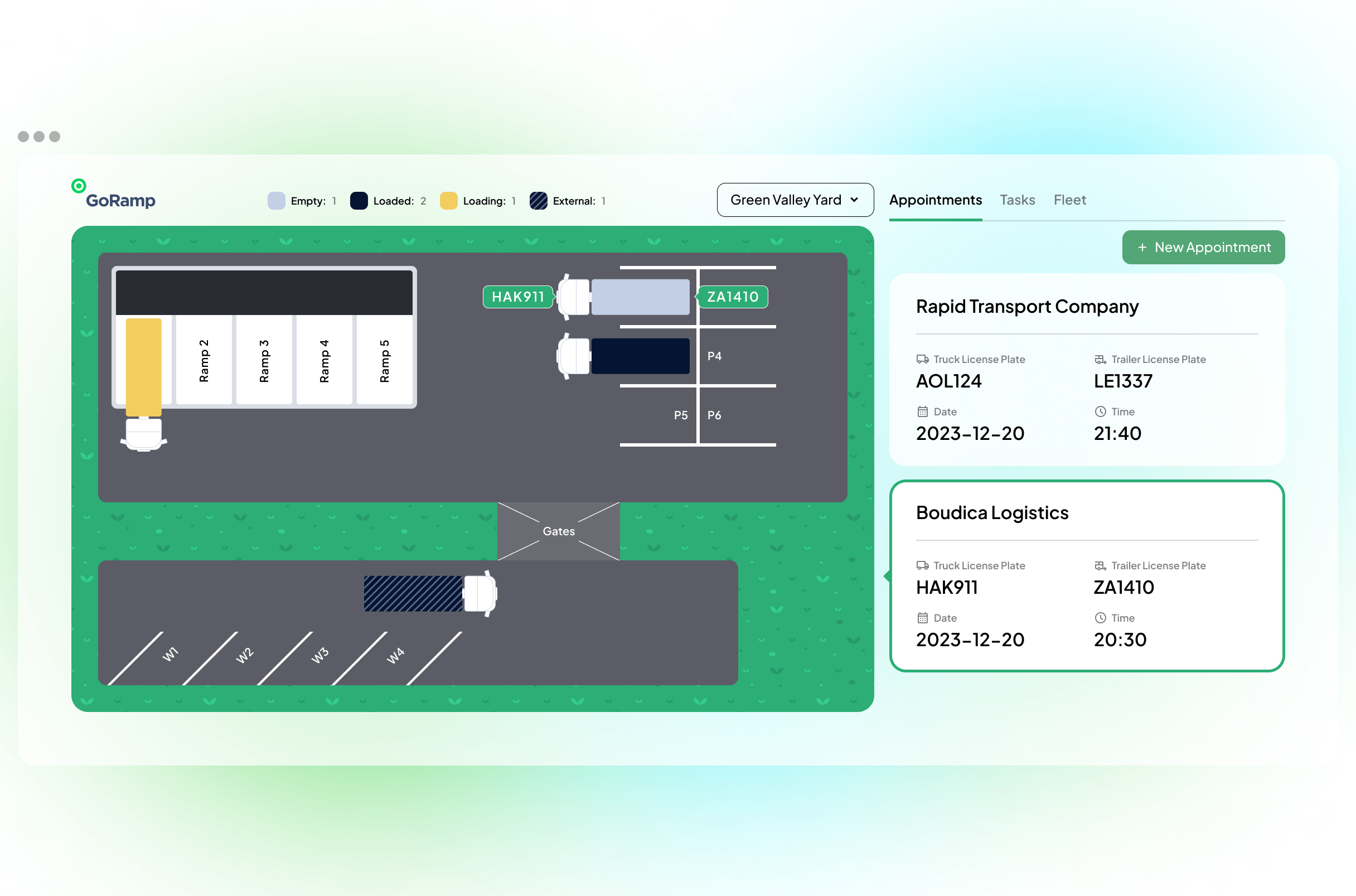This time we looked at what 2022 holds for the logistics industry. Since we provide logistics and warehouse management innovations' solution we know that keeping up with all technology developments, market trends, upcoming legislation and the ever-changing consumer behaviour is not easy. That is why we have prepared a summary of the major trends to watch in 2022. The following 5 trends, or in some cases issues, will affect a majority of transportation companies in one way or another during 2022.

Self-driving Trucks are Soon to Hit the Roads
Autonomous, self-driving cars have always been a hot topic in the industry but today focus is shifting from self-driving cars (or robo-taxis) to self-driving trucks. Analysts and experts are starting to agree that self-driving trucks will be the first widely used autonomous vehicles and investments in autonomous trucking companies confirm it. According to PitchBook Analyst Note: Autonomous Trucking Gains Traction, in 2017 autonomous trucking companies received $0.1 billion in investments and during the first half of 2021 investments skyrocketed to $5.6 billion (2020 - $4.2 billion, 2019 - $1.1 billion, 2018 - $0.3 billion).
This year autonomous vehicle company TuSimple announced impressive test results - their self-driving truck delivered a load of fresh watermelons 42% faster than it would normally take with a human driver. A human driver worked on the pick-up and delivery stages while the autonomous part of the trip covered more than 900 miles. A human driver can complete the entire trip in 24 hours and six minutes and their self-driving truck did it in 14 hours and six minutes, which is 10 hours or 42% faster. Of course, the driver was present at all times for safety reasons, but the results are still very impressive. The self-driving truck growth is clear and in 2022 we will definitely hear more about the achievements of self-driving trucks.

Since trends of carrier companies changes, it is useful to reevaluate processes of your logistics providers. You have to know key factors to consider when choosing logistics partner.
eFTi and eCMR will shake up EU
The electronic freight transport information, or eFTI, regulation (EU) 2020/1056 is a harmonised EU framework for the business-to-authority electronic exchange of freight transportation information. It establishes a legal framework for transport operators to share information with enforcement authorities in an electronic format. The eFTI also aims to encourage the digitalisation of freight transport, reduce administrative costs and paperwork, improve enforcement capabilities and enhance the overall efficiency and sustainability of the transportation sector.
Even though the eFTI will enter into force in August 2024, 2022 marks an important milestone - the European Commission will develop the technical specifications for eFTI platforms by 2022. This means that starting from 2022 member states will start developing electronic platforms for information exchange. TMS, Dock scheduling and other platform providers will also be adapting their products to the new regulation.

e-CMR has been around for quite some time now but 2022 could be a breaking point for it. Just recently Germany ratified the e-CMR protocol, enabling its application in Germany. With the largest automotive market in Europe onboard with e-CMR, it will definitely give a boost to e-CMR usage. Moreover, carriers are focusing more on efficiency and sustainability and ditching the paper CMR forms is one of the first steps. Currently, it is expected that by 2026 e-CMR will become mandatory.
Last-mile Deliveries will Make or Break
The Covid-19 pandemic gave an enormous boost to e-commerce and changed consumer behaviour. With pandemic going on for 2 years and lockdowns becoming a new normal, online shopping is thriving like never before. People, who previously have never bought anything online, now have discovered how convenient and easy it is to shop online. As a result, parcel delivery demand is surging. After the pandemic will end, the new shopping habits will remain.
E-commerce put last-mile delivery in the spotlight. For a long time, getting orders from a warehouse to their final destination was one of the most inefficient processes for transportation companies. But with pandemic sweeping across the world, suddenly everything had to be delivered to the consumers’ door - food, groceries and basically everything else. Add to that a demand for the same-day delivery and parcel return services, and you have quite a challenge to solve.

To tackle it, transport companies will continue to heavily invest in tracking and route optimization platforms to improve visibility and efficiency. Some companies are betting on drones and delivery bots to finish that last-mile and more cities are starting to give permits and begin testing new delivery methods.
In the meantime, more companies are offering platforms, based on Uber and Airbnb models, for anyone to become an on-demand courier and make last-mile deliveries. Bike, electric scooter or an old car - anything goes as long as you make that delivery.
Growing Demand and Pressure for Green Logistics
Sustainability is a general direction that is getting more important every year and the transportation industry is no expectation. After the Conference of the Parties 26 (COP 26) meeting in Glasgow, the message is clear - to limit global warming we need to set more ambitious decarbonization goals which require a transformation of the way society produces and consumes. Road transport accounts for 10% of global emissions and its emissions are rising faster than those of any other sector.
Stricter emission regulations require carbon-neutral solutions. The United Kingdom, Canada, France, Spain, and many other EU countries, have already set targets to phase out sales or registrations of new internal combustion engine cars by a certain date, with most aiming for years 2030-2040. It is a clear sign that vans, trucks, busses and lorries are next in line.
Corporate green initiatives also drive the need for more sustainable logistics. Large corporations are focusing on sustainability targets and making their entire supply chains greener is usually one of them. In addition, more and more consumers are willing to pay a premium price for sustainable delivery of goods. Whether it is a carrier with a fleet of electric vans or ambitious corporate social responsibility initiatives, all of it adds value to the consumers’ buying decisions.

Not Enough Truck Drivers and Talents
It is no surprise that the global driver shortage will continue to be one of the key issues in 2022. The American Trucking Associations (ATA) estimates that driver shortage is already at a historic high with over 80,000 drivers short in 2021. ATA study shows that in 2022 truck driver shortage will continue to grow and could come close to 90,000. Even more, the ATA study forecasts that at current trends the shortage could surpass 160,000 in 2030. Europe is also battling a similar situation - according to the research paper by Transport Intelligence (TI), the European driver shortage is now surpassing 400,000. While Poland is only the 5th largest population in the EU, it has the highest driver shortage of over 120,000.
There is also a new issue emerging - lack of logistics, supply chain and digitalization experts. With the number of transfers growing and supply chains becoming more complex and difficult to manage, demand for experienced supply chain professionals is growing rapidly. Currently, most industries are undergoing digital transformations and the logistics industry is already in the process. Dock scheduling platforms, TMS, telematics, big data solutions and even first AI applications today are an integral part of the industry. At the same time specialists, that are driving the digitalization process, are in high demand since many industries compete over them.
Digitising your manual operations and overcoming challenges of the future can be as fast as a few weeks and results can be seen the very next day. Visiting logistics conferences and events helps to stay up to date with industry trends.
Book a quick call with our expert and we will help you to understand how the Transport management and Dock scheduling systems could benefit your operation.











